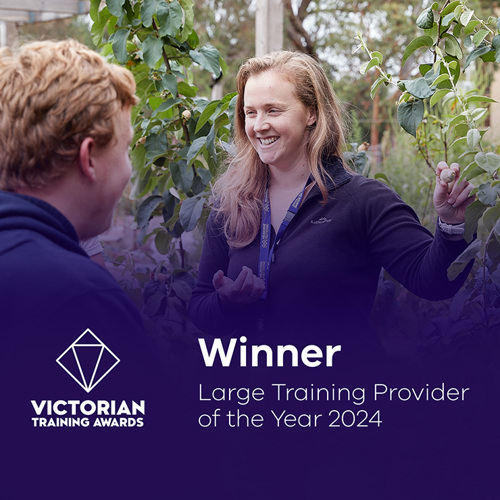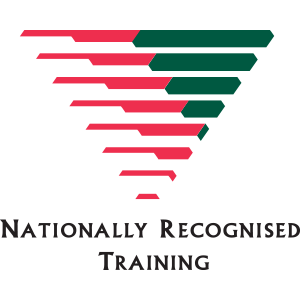Diploma of Accounting
Overview
6 months full time / 12 months part time
6 months
February, July
February, July
Put your analytical mind to use in an international industry
If you have a head for numbers and your eye on the financial industry, Melbourne Polytechnic’s Diploma of Accounting FNS50222 will prepare you for employment in the industry within six months, as a qualified assistant accountant. Support clients as an accountant with regular financial monitoring and analysis, preparation of documents, reports and accounts advice.
The Diploma of Accounting FNS50222 balances your skills with industry experience
Melbourne Polytechnic’s accounting students benefit from instructors and exercises that have been integrated from the industry. Your teachers have real-world experience as tax agents, BAS agents and CPAs, and guest lecturers from peak industry accounting bodies will share their knowledge and their networks. The Diploma of Accounting FNS50222 also provides an alternate pathway to the Bachelor of Accounting for students who have not completed secondary schooling in Australia.
The first step in your accounting career
Qualifications in accounting can be taken around the world. This course completes some of the education units required by the Tax Practitioners Board for registration as a tax agent. Successful completion of the Diploma of Accounting FNS50222 entitles you to join the Institute of Public Accountants (IPA).
Career Pathways
Where will the Diploma of Accounting FNS50222 take me?
Successful completion of our Diploma of Accounting FNS50222 puts you on a pathway to becoming a qualified accountant. You can pursue further study to advance your career in accounting.
- Payroll Officer
- Financial Analyst
- BAS Agent
- Bookkeeper
- Accounting Manager
Study Pathways
Upon successful completion of Melbourne Polytechnic's Diploma of Accounting FNS50222, you may enrol in our Bachelor of Accounting, where you will receive credit for 8 subjects, equivalent to one year.

Course Details
Delivery methods
This course is available as a 6 months full-time program
or a 12 months part-time program. The 12-month program is virtual classes only.How you will study
Each course has a dedicated learning method that is designed to let you thrive in your studies.
On-campus
Interactive learning in a face-to-face environment. Classes will be held at a Melbourne Polytechnic campus or partner institute. Visit the How You'll Study page for more information.
Class Schedule
6 months program: three days per week, Monday, Wednesday & Friday – 9am to 4.30pm.
12 months program: two nights per week, Tuesday & Thursday - 6pm - 9pm on Zoom,
Assessment Methods
Assessment consists of engagement via email, phone, Zoom, Moodle activities including collaborative tasks and individual project work, Moodle forums and direct feedback via Moodle.
Units of Study
The hours displayed are nominal, actual classroom hours delivered may differ. Please contact us for the latest student contact hours information.
| Code | Subject | Elective | Hours |
| BSBTEC402 | Design and produce complex spreadsheets | Core | 50 |
| FNSACC505 | Establish and maintain accounting information systems | Elective | 50 |
| FNSACC521 | Provide financial and business performance information | Core | 60 |
| FNSACC522 | Prepare tax documentation for individuals | Core | 80 |
| FNSACC523 | Manage budgets and forecasts | Core | 40 |
| FNSACC524 | Prepare financial reports for corporate entities | Core | 70 |
| FNSACC526 | Implement and maintain internal control procedures | Core | 40 |
| FNSACC527 | Provide management accounting information | Core | 60 |
| FNSINC514 | Apply ethical frameworks and principles to make and act upon decisions | Elective | 40 |
| FNSINC612 | Interpret and use financial statistics and tools | Elective | 60 |
| FNSTPB503 | Apply legal principles in contract and consumer law | Elective | 60 |
Attend an Information Session
Fees & Costs
| Free TAFE | Government subsidised fee | Non-subsidised fee | |
|---|---|---|---|
| Tuition fee | $0 | $4550 | $7700 |
| Materials fee | $360 | $360 | $360 |
| Maximum annual amenities | $250 | $250 | $250 |
| Total payable | $610 | $5160 | $8310 |
| Per year | $8200 |
| Per semester | $8200 |
| Materials fee | $360 |
The student tuition fees as published are subject to change given individual circumstances at enrolment.
Displayed course fees are indicative only. There are many variables that impact the total amount of your full course costs including qualification for government subsidies, concessions or recognition of prior learning. Tuition fees do not include the cost of student amenities or material costs.
This training is delivered with Victorian and Commonwealth Government funding. Contact us to find out if you’re eligible for a Government subsidy.
Melbourne Polytechnic offers a range of payment options to help you pay your tuition fees, so you can get on with your studies.
Fees displayed are effective for new applications received on or after 1st of November. Tuition fees do not include textbooks, course materials or overseas student health insurance and visa fees.
After initial deposit, international students are able to pay tuition fees in installments, four times per year.
For more detailed information please read the International Student Fees.
Materials
Lists of required materials, books and timetables will be provided at course induction or class enrolment by the teaching department.Fees explained
The State Government’s Free TAFE for Priority Courses initiative covers the cost of tuition (excluding Amenities Fees and Materials Fees) for students who are eligible for government subsidised training and enrol into one of the Priority listed course.
Free TAFE is available to eligible students for one course enrolment in a lifetime.
Free TAFE places are limited. Please call 1300 635 276 and we can advise you whether Free TAFE places are still available.
Free TAFE for Priority Courses initiative covers the cost of tuition fees for students who are eligible. Materials and amenities may still apply.
The Free TAFE for Priority Courses initiative will pay your tuition fees for only one course. Once you have commenced in a tuition-free priority course, you are not eligible for further tuition-free places again, even if you do not finish your first tuition-free priority course.
The fees for those ineligible for a government-funded enrolment.
The cost of tuition for those eligible for government funding.
Additional expenses
The Student Services and Amenities Fee is charged at forty cents (40 cents) per student contact hour and is capped over a twelve (12) month period, effective from the enrolment date, to:
- $250 for full fee-paying students; and
- $175 for concession-paying students studying Certificate I, II, III, or IV.
Amenities fees are used to improve non-academic services including libraries, counselling services, student support, and recreational activities.
You will be required to purchase textbooks. This is not covered under your materials fees. The approximate costs for books is an average of $450. A book list will be provided at enrolment. Our trainers will provide all additional materials.
You are also expected to have access to a computer. Computers are available in Melbourne Polytechnic’s computer labs and library if you do not have a computer at home.
Accounting courses at Melbourne Polytechnic
Requirements
You must have access to a computer or laptop with a camera, headset and internet connection.
Students can apply for this course if they completed a previous qualification in Certificate IV in Accounting (FNS40217), Certificate IV in Accounting and Bookkeeping (FNS40222), or have completed the following four (4) pre-requisite units:
- FNSACC321 Process financial transactions and extract interim reports
- FNSACC322 Administer subsidiary accounts and ledgers
- FNSACC418 Work effectively in the accounting and bookkeeping industry
- FNSACC421 Prepare financial reports (or its equivalent BSBFIA401 Prepare financial reports)
The preferred pathway for entry to this qualification is the Certificate IV in Accounting and Bookkeeping FNS40222. For additional information, we encourage you to attend one of our Information Sessions.
Academic: Students can apply for this course if they completed a previous qualification in Certificate IV in Accounting (FNS40217), Certificate IV in Accounting and Bookkeeping (FNS40222), or have completed the following four (4) pre-requisite units:
- FNSACC321 Process financial transactions and extract interim reports
- FNSACC322 Administer subsidiary accounts and ledgers
- FNSACC418 Work effectively in the accounting and bookkeeping industry
- FNSACC421 Prepare financial reports (or its equivalent BSBFIA401 Prepare financial reports)
The preferred pathway for entry to this qualification is the Certificate IV in Accounting and Bookkeeping FNS40222. For additional information, we encourage you to attend one of our Information Sessions.
English:Academic IELTS 6.0 overall, Pearson PTE Academic 50 overall or Melbourne Polytechnic recognised equivalency.
Other:Full-time only for International Students. You must have access to a computer or laptop with a camera, headset and internet connection.
Next Steps
We're really excited for you to join the Melbourne Polytechnic community and we look forward to supporting you on your education journey.
The first step to enrolling is completing the application short form from the Apply Now page.
You'll then receive a link to complete a few more personal details.
It is a mandatory government requirement for all prospective students to complete an online literacy and numeracy assessment.
Once you are ready to enrol, you will be invited to attend our Skills and Job Centre, or come to campus to complete your enrolment in person.
For Diplomas and Advanced Diplomas, you may be eligible for a VET Student Loan. Read more about them here.
If you need assistance with your application and the next steps, you can contact one of our Education and Course Advisors on 1300 635 276 or follow a step-by-step guide to enrolling for vocational education local students.
When we receive your application, the International Office will be in contact with you shortly to discuss your application and provide you additional instructions.
If you'd like to speak to one of our International Office staff directly, call 1300 635 276

We're Victoria's Large Training Provider of the Year
Study with Melbourne Polytechnic, proud winner of Victoria’s 2024 Large Training Provider of the Year! Recognised for our innovative programs, industry partnerships and commitment to student success, we’re here to help you build the skills for a thriving future.
Recognising Organisations

Nationally Recognised Training This course is government accredited and has national recognition.
Local student means; you are an Australian citizen or permanent resident, a New Zealand citizen or a permanent humanitarian visa holder.